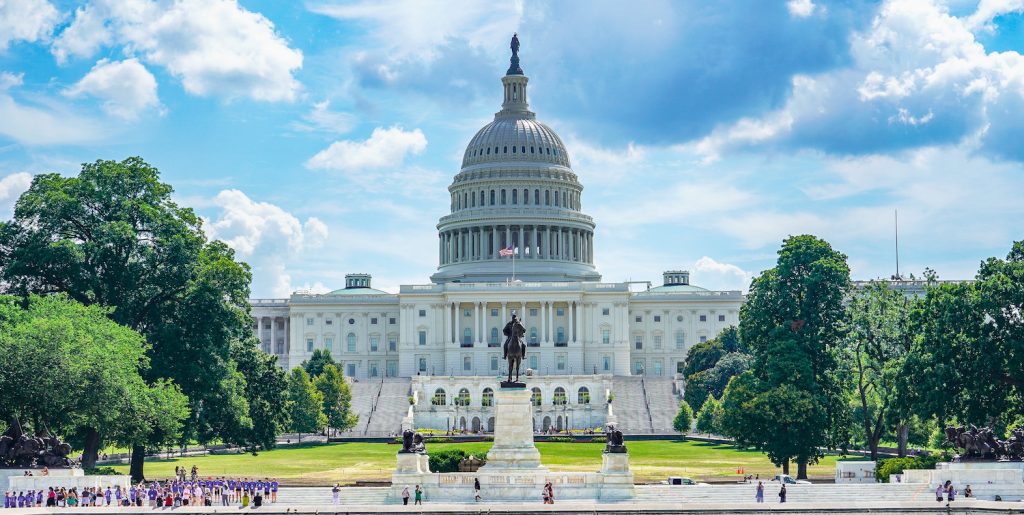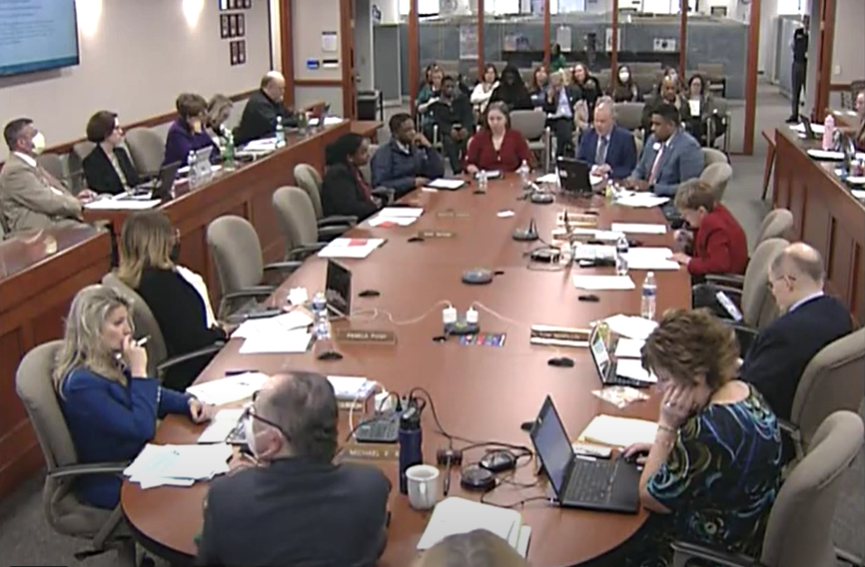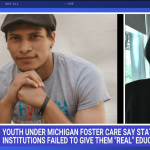EFyTECH Recommends Updated Rights and Protections for Foster Youth to Michigan Lawmakers
On December 13, Christian Goode, Christian Randle, and Bryanna Cook, three students from the Park West Foundation’s group of youth leaders called EFyTECH (Empowering Foster Youth through Technology), met with the Michigan Department of Education and the Michigan Department of Health and Human Services in Lansing to address the top challenges faced by Michigan’s foster youth today and determine the most efficient and equitable solutions to these challenges.

Common challenges to academic and social success among Michigan foster youth:
- Frequent moves.
- Not knowing what’s going on or happening regarding academic or foster care plan.
- Lack of educational standards.
- Lack of record-keeping standards.
- Enrollment in an un-productive curriculum that does not count towards high school graduation
- Making public school attendance a privilege that must be earned*
- Making Semi-Independent Living Preparations a privilege that must be earned*
- Unnecessary use of force.
- Culture that neglects the value of youth voice, and rights of children and youth in foster care.
- Disproportionate number of black children and youth in the most restrictive and toxic settings.
- Inadequate support of youth with food, financial assistance, housing, and transportation while in community settings (National Youth in Transition Data Survey).
Effects of the Challenges
- Extremely low graduation rate.
- Lost connections to family, health care, and school professionals.
- Loss of academic records including credits and transcripts.
- Repeated classes or entire grades.
- Students unable to graduate from high school.
- Increased dropout rate.
- A negative mental, emotional, social, and financial impact on foster youth.
- The inability of foster youth to find their place in society due to long-term isolation, trauma, and institutionalization.
We based our solutions to these challenges on the values and expectations of the Every Student Succeeds Act (ESSA), where all foster children and youth in Michigan, regardless of placement, must have equal access and opportunity to their peers in order to prepare for high school graduation, earn post-secondary credentials, and reach their full potential.
This would mean guaranteed and uninterrupted public school education for every foster youth in Michigan, in a safe, healthy, and stable environment where their rights and protections in accordance with the ESSA are consistently met throughout their entire k-12 education.

OUR RECOMMENDATIONS ARE AS FOLLOWS:
All foster children and youth in Michigan, regardless of placement, must have the same access and opportunity to prepare for high school graduation, earn postsecondary credentials, and reach their full potential.
Foster children and youth must have:
- Uninterrupted public school education for entire school years, in an environment where their health, stability, and safety are guaranteed.
- Afforded all rights and protections according to the Every Student Succeeds Act (ESSA) and Fostering Connections.
Stability:
- To be connected and rooted in a community by remaining in the same elementary, middle, and high school; (MDE & MDHHS)
- Increase daily rate/stipend for both foster youth and foster parents.(MDHHS)
Climate and Culture:
- Invest in safe, healthy, and stable placement & school with effective trauma-informed interventions, which include de-escalation techniques based on restorative practices. (MDE & MDHHS)
- Placement/school focus must be on education, wellbeing, and comprehensive youth-centered transition plan from day one.(MDE & MDHHS)
Rights:
- Youth must have access to Information as to what is happening in their case, including access to accurate and complete educational records, transcripts needed to understand academic progress, credits and assessments; via coordinated use of technology. (MDE & MDHHS)
- Youth centered and co-created MDHHS computer systems, can ensure not only access to information, but also youth voice, equity, and efficiency. (MDE & MDHHS)
Educational Rights:
- Residential placements must enroll students in credit-bearing educational programs which lead towards high school diploma and post secondary opportunities. (MDE & MDHHS)
- Therefore, amend the education portion of the MDHHS Residential Placement contract to include the Michigan Merit Curriculum, High School Diploma, Educational Development Plan, and definitions of Education and Medical Rights Holders’ roles. (MDE & MDHHS)
Transition:
- Enroll students immediately, on the next open school day, without pre-assessment and without any pre-condition with official transcript on hand and with clear plans for transportation. If student is in 7th grade or older – with an Education Development Plan (EDP) on hand (IEP/504 Plan) as needed.
Streamline Transportation:
- To ensure students remain in the same school and participate in all school based activities including after school programs.
Food Assistance:
- Provide uninterrupted MDHHS SNAP Benefits for foster youth 16-26 in and out of high school and postsecondary institutions with no mandatory work requirements using allowable 15% exemption. (NYTD Survey of Michigan youth aging out identified food insecurity as the highest need at 74%)
Representation by Parent/FERPA:
- Right for students to be represented by legal parents for education, or their Education Rights Holders/Surrogates as neither DHHS nor its contractual agents can act as an educational surrogate for a court ward.
Judicial Oversight and Compliance:
- Require caseworkers to submit an academic progress update as well as an academic credit and records transfer plan at each hearing and before changing placement for a child or youth in foster care.
Raise the Age:
- As over 60% of foster youth do not graduate high school with their peers statewide, raise the age of eligiblity for students in foster care to 23 for both Tuition Incentive Program (TIP) and Education Training Voucher (ETV) to ensure access, equity, and inclusion of students in foster care.
Appropriate the following funds directly to children and youth in foster care:
- Raise annual $25 foster child/youth Holiday Allowance to $200 per child/youth
- Foster youth cannot learn if they’re hungry. Provide foster youth 16-26 work exemption for access of food assistance, who are transitioning out of foster care on their own with no one and with nothing (Consider full EFyTECH Policy Recommendations for Foster Youth Food Security)
- a) Invest a lifeline of $200 monthly cash assistance when youth have no income or stipend, along with uninterrupted SNAP benefits for those 16-26 in alignment with Obama Care
- b) Invest additional food assistance of $100 during each move of foster child/youth to a new placement, while under the supervision of MDHHS for those ages 0-20;
- Increase Foster Parent/Foster Youth 16-20 Stipend by 70% or $40 per day.
- 20% of foster youth become homeless on the day they age out of foster care. Invest $1,500,000 in rental assistance and supportive housing services for foster youth 18-24
- Allocate $100,000 for AAA Emergency Road Service/Roadside Assistance, oil/tire change, minor car repair and final inspection on car purchase:
- Allocate $2,500,000 in tutoring and transitional planning support for students in foster care, 6th through 12th grades.
- Reinstate MDHHS Educational Planners, who were the only K-12 educational support available for students in foster care for over a decade.

Established in 2006, Park West Foundation serves as the charitable arm of Park West Gallery, which inspires and supports Michigan’s youth who age out of the foster care system. To learn more about Park West Foundation, visit www.parkwestfoundation.org, or check out our Facebook and Instagram.



